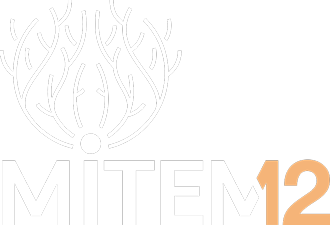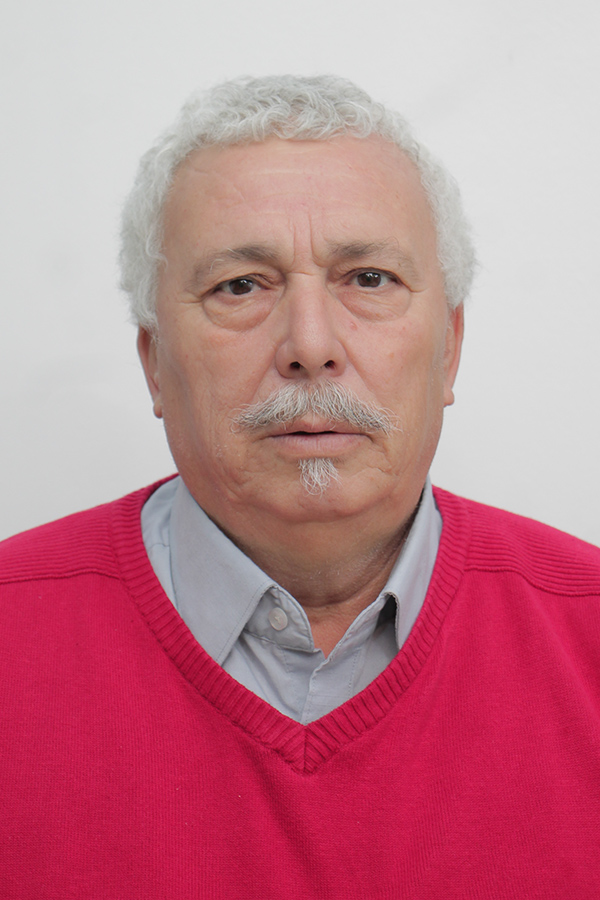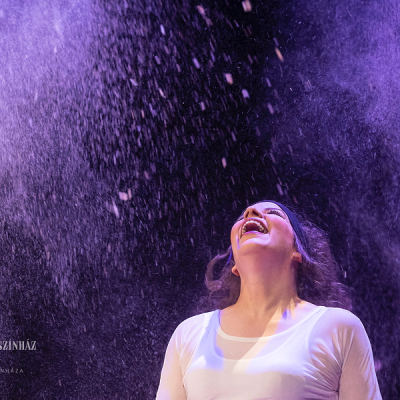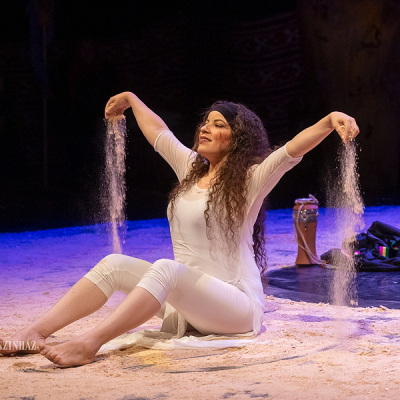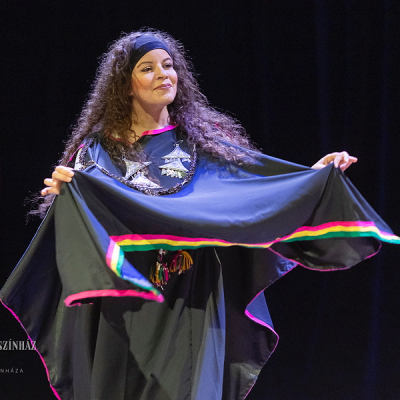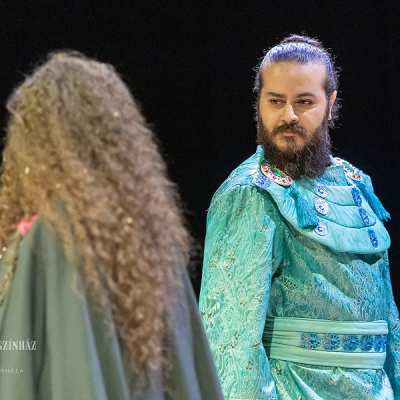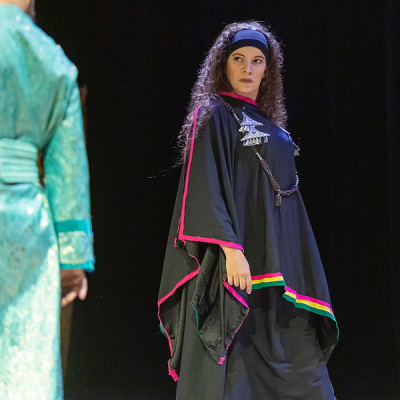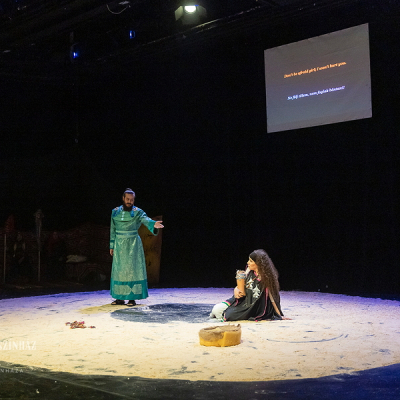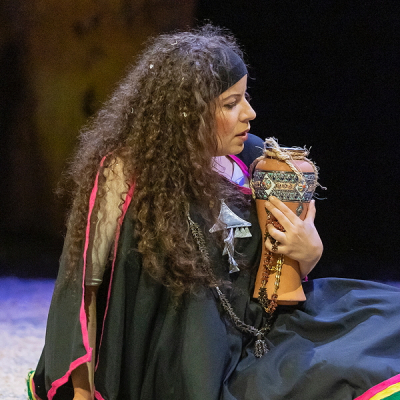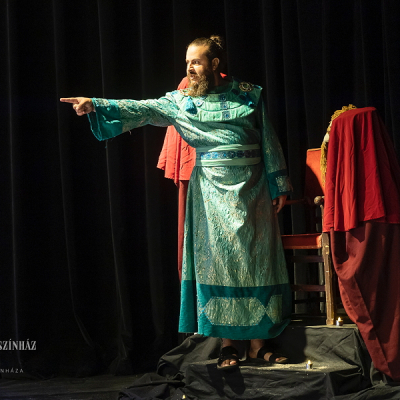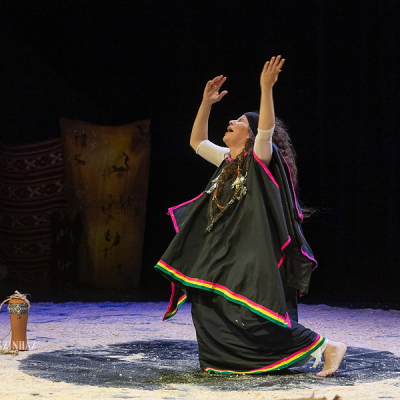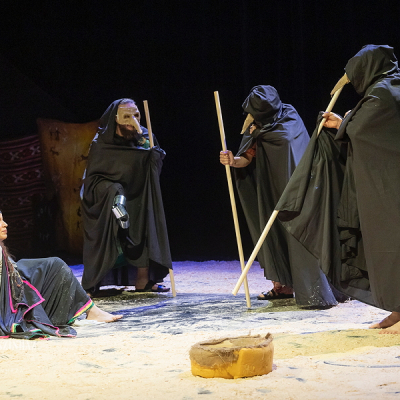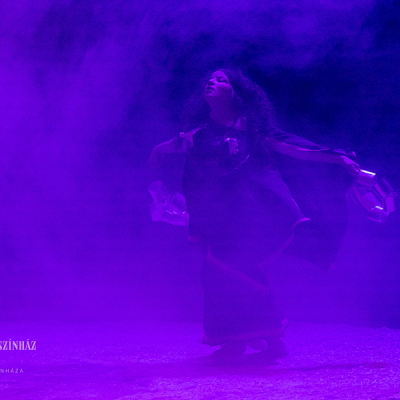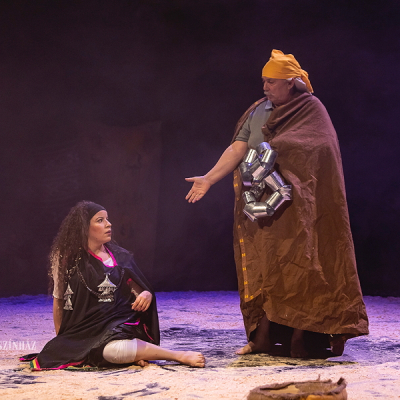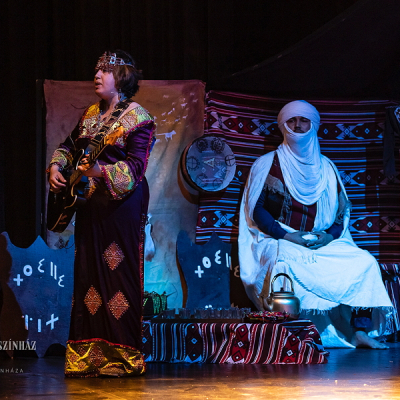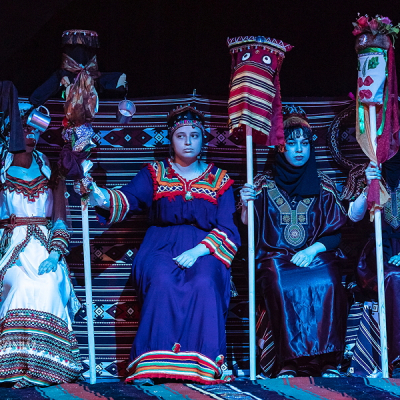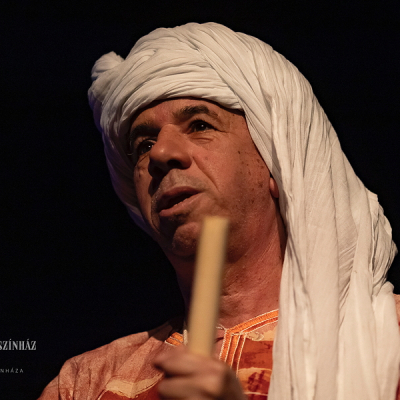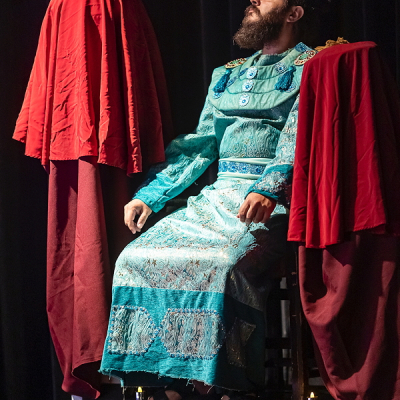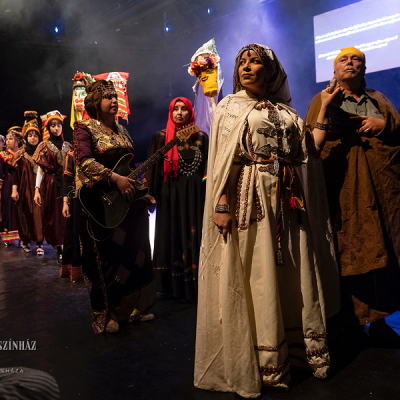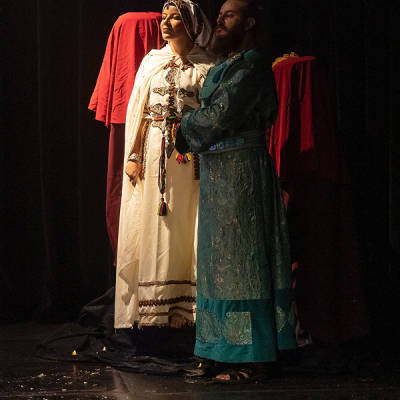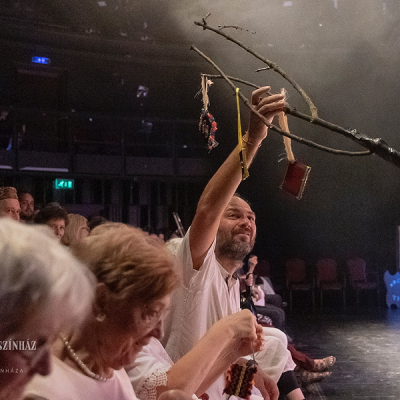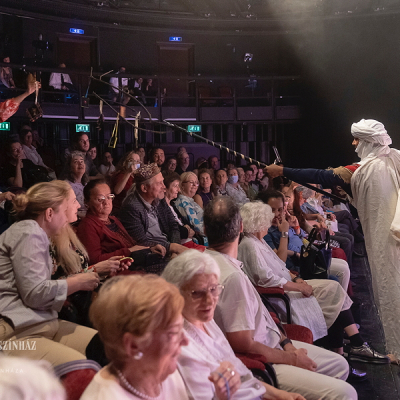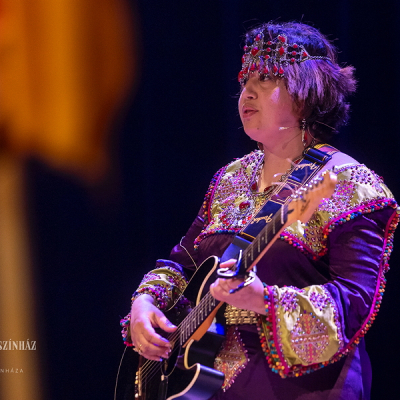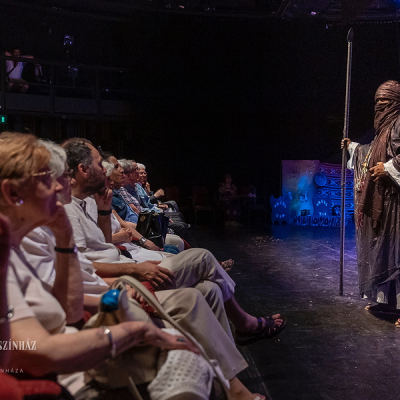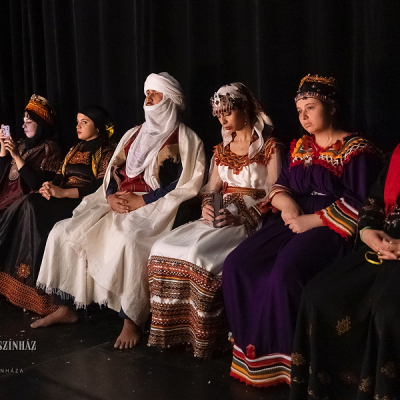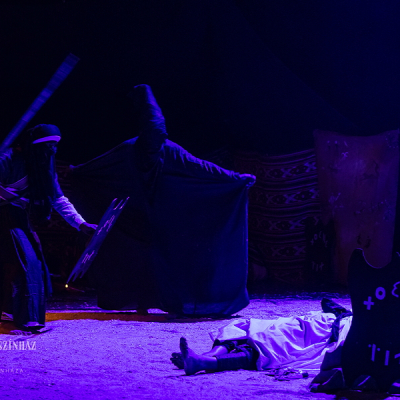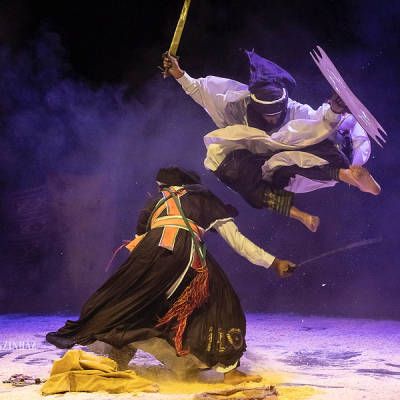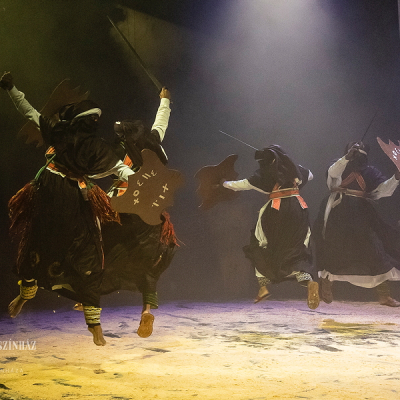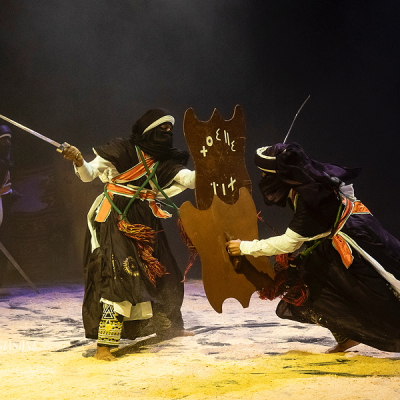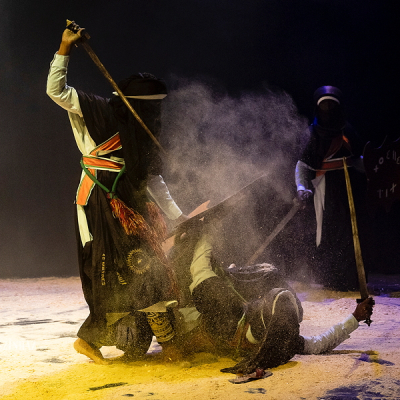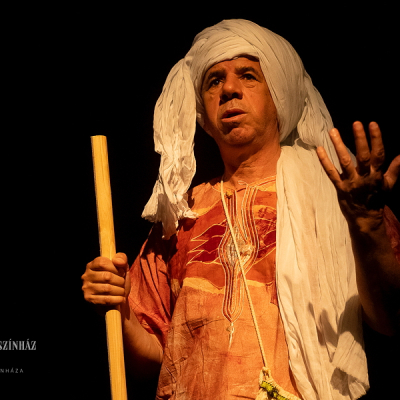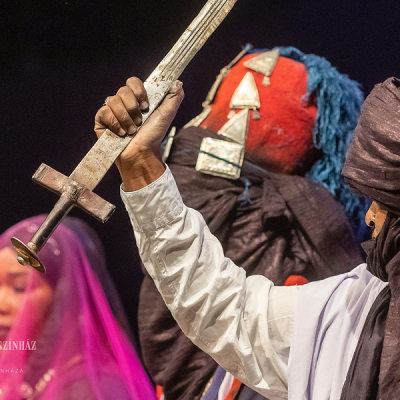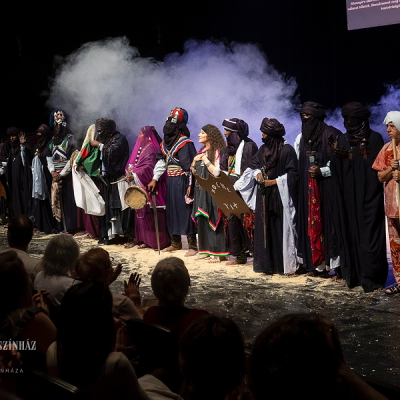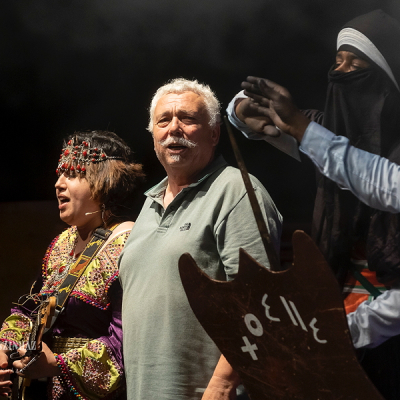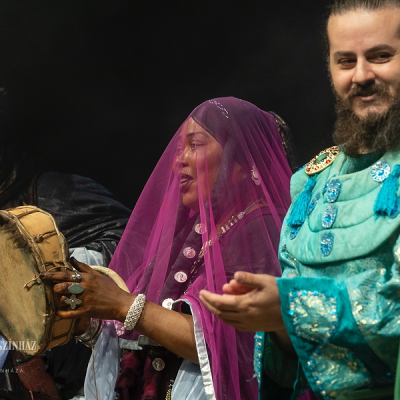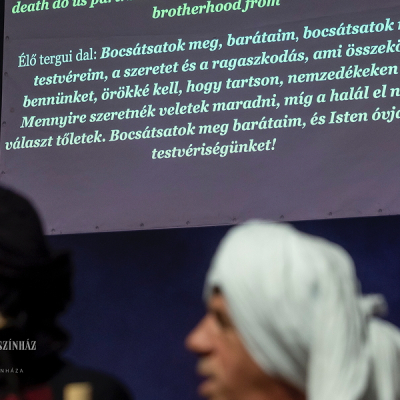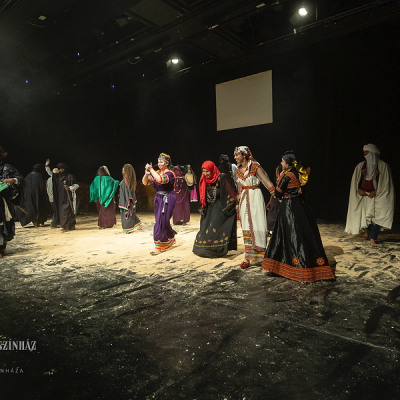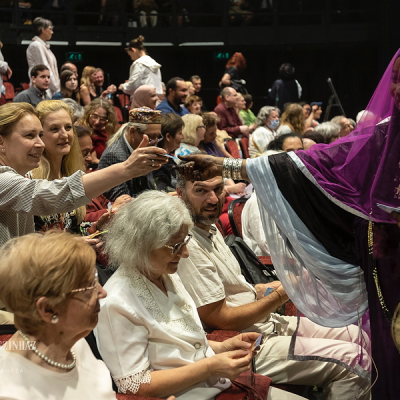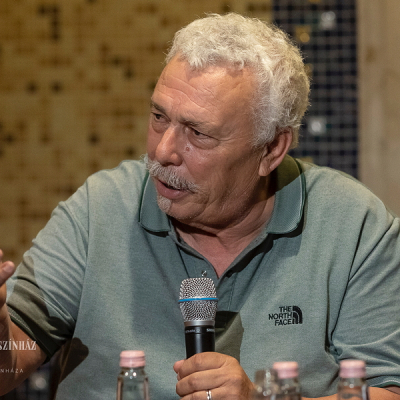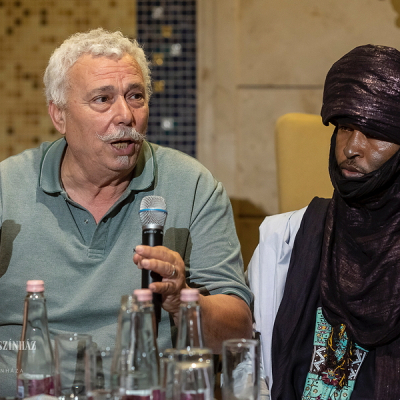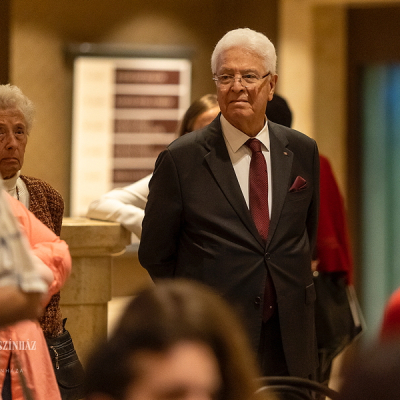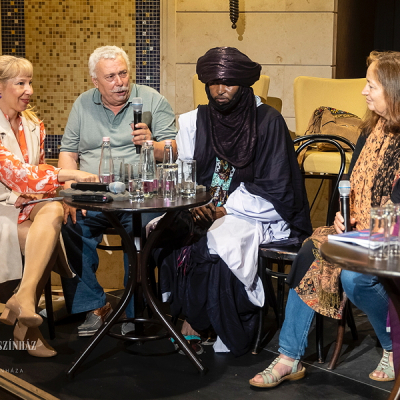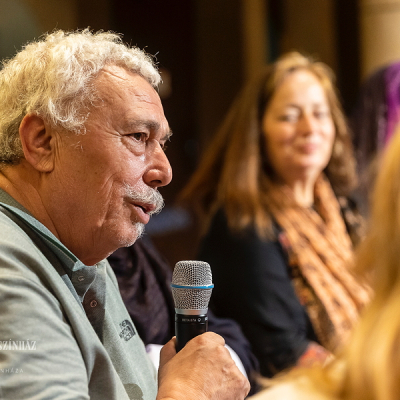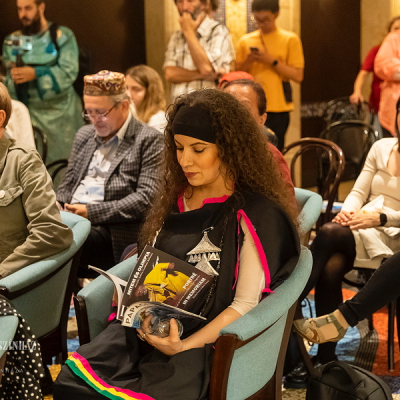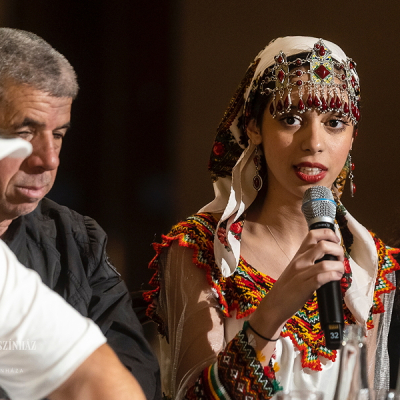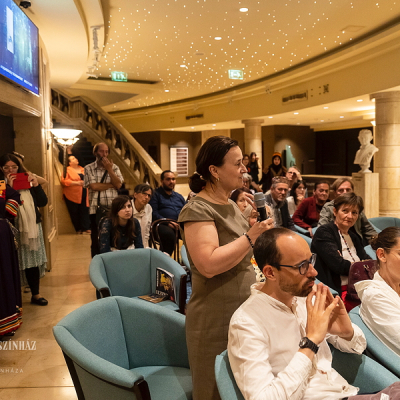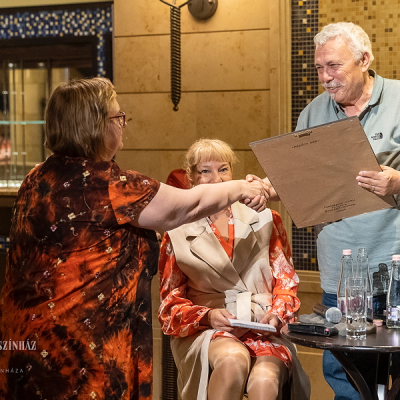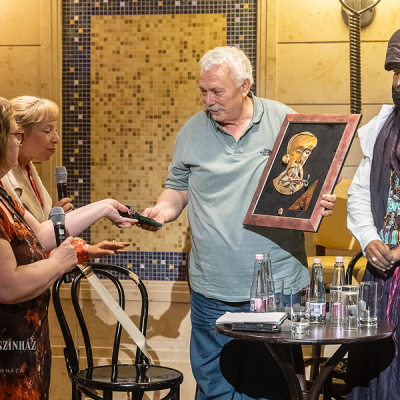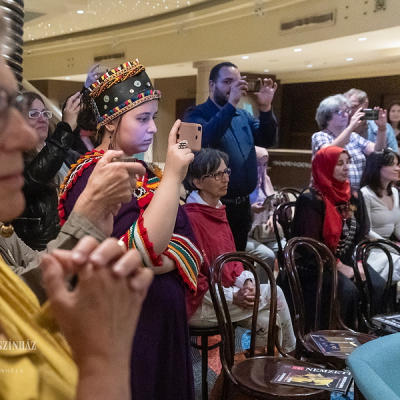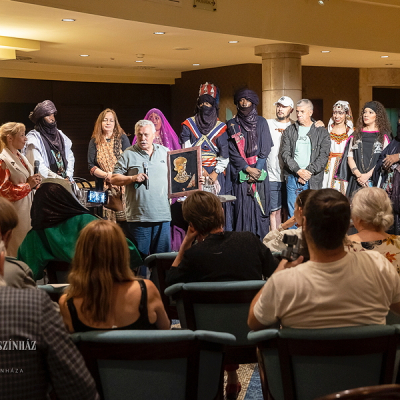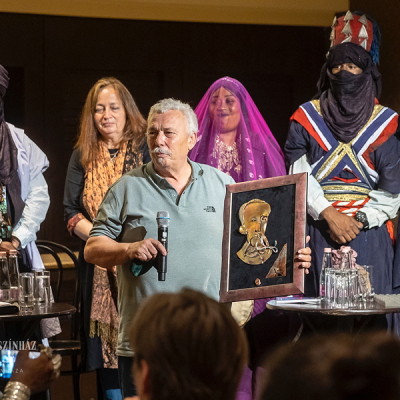Voice of the Sand
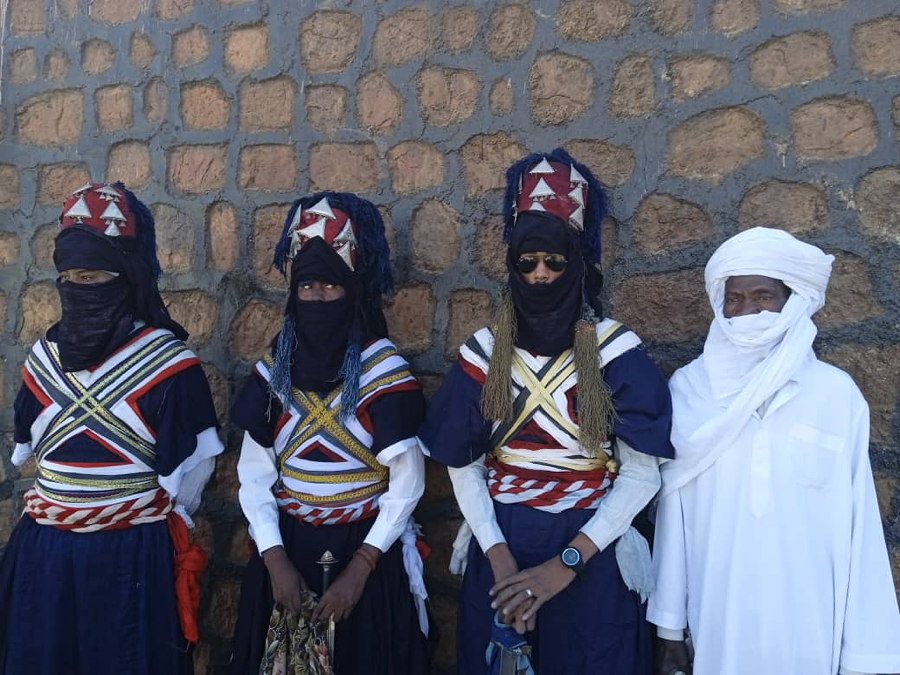
Sindjab Theatre Company, Algerien
Director: Omar Fetmouche
Dance performance
1 hours 20 minutes with 1 breaks.
The performance is a theatrical and choreographic reconstruction of millennia-old forms of representation of an ancient artistic and cultural universe now unknown to an entire civilization. The show revolves around the theme of water in three acts.
Act I presents "Thislith Ouzar" (Bride of the rain) one of the oldest ceremonies existing today in Algeria, Morocco, Libya and Tunisia. This rain-making rite is based on a folk legend, a story of unrequited love involving Anzar (the god of rain and water in Berber mythology) and a village girl of outstanding beauty he wants to marry. Her refusal provokes the deity’s wrath: he decides to block the course of the waters flowing to the villages. The terrified inhabitants pray to him for rain in a collective ceremony, and offer in return the youngest girl of the village.
Act II allows a glimpse into “Takoba”, an ancient warrior rite illustrating water-related conflicts and skirmishes in the oases of the great desert. It is a choreographic "war dance" with a sword (the takoba). The dance is presented as a theatre scene involving two groups of Touaregs in conflict around a well at the edge of the oasis.
Act III presents La Sebiba, a ritual dating back more than three millennia. It is rooted in ancient history and depicts how two rival tribes convert warfare into a ritual that takes place in a dry river bed separating their oases.
A woman makes rounds with a ganga (tambourine), inviting the two tribes to make peace by holding a contest, "a war without blood". The tribes are challenged to display their artistic skills. The performance includes solo dances, simulated battle and ancient songs sung by women’s choirs to the rhythm of tambourines. The contestants simulate battle so they don’t have to fight it out again. The "warriors" are transported into a magical state by their energetic dance steps, raising clouds of dust and sand, under the gaze of the wise men of the districts of El Mihane and Zelouaz, arbiters of this pageant of costumes, poetry, song and dance. The show’s goual (narrator) recounts the facts and at specific points, invites the audience to get involved in the celebration and the ritual.
Dancers:
Bekkar Tahar, Abdedaoui Djamal, Abdou Aghali, Oukacem Mustapha, Oukacem Sidi Mohamed, Abdou Ali Abdou El Basset, Ilyes Boubekeur, Oukacem Abderahmane, and Khalfellah Mohamed (contemporary breakdancer)
Singers:
Abdedaoui Naima, Mechar Aicha, Halcor Nacéra, El Affia Meriem,
Actors:
Ben Attia Lila, Rebbat Amirouche Comedian, Azezni Ahcene Comedian, Ouzriat Fatiha Seasmstres
Stage designer: Bezza Cheddad
Costume Designer: Ouzriat Fatiha
Choreographer: Mohamed Atoui
Composer: Rahima Khelfaoui
Omar Fetmouche
